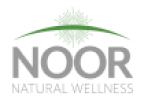Medically Reviewed by Dr. Dina Khairie, PharmD
The integumentary (skin) system is the largest organ in the body. It is responsible for protecting our internal organs, the synthesis of vitamin D and acting like a mini excretory system where our sweat is released. As we go through phases in our lives so does our skin. Its health and appearance are important and there are many factors that can affect its integrity and cause acne. Hormonal shifts, inflammation, poor diet, a toxic build-up in the body, nutrient deficiency, infection, external pollutants and side effects to medication are all common causes of acne and other types of dermatitis.
What is acne?
Acne is characterized by the presence of whiteheads, blackheads, pustules and cysts on the face and/or body. Conventional treatments include antibiotic creams, Accutane and local antiseptics that offer varying success rates. In this article, we will explore the best vitamins for acne and some vital tips we can put into action to treat it safely and naturally
Best vitamins for preventing acne:
Zinc
Acne usually begins during the onset of puberty around 12-15 years of age. Hormones begin to fluctuate and stimulate sebaceous glands which increases sebum production (sebum is characterized by an oily secretion). These glands can become overactive and cause excess oil to clog the pores which lead to acne.
Zinc is a regularly overlooked mineral and is one of the best supplements for acne, especially teenage acne. Zinc is an anti-inflammatory, so it helps alleviate the redness, irritation, and scarring associated with acne. Zinc also contains anti-viral and antibacterial properties which makes it great for keeping bacteria-filled blackheads and whiteheads at bay. There are many topical zinc applications on the market for acne, but taking a zinc supplement to target the acne from within is a more proactive and preventative approach. A typical dosage would be 15-25mg a day but the severity of the acne and gender must be taken into account to determine the right dosage, talk with your local pharmacist to find out more.
Fish Oils
Fish Oils contain powerful anti-inflammatory properties that target inflammatory acne.
Omega 3 and 6
fatty acids suppress cytokine production which has been proven to help decrease acne severity. A study was done by the US National Library of Medicine about these findings, you can read more about it here,
https://www.ncbi.nlm.nih.gov/pmc/articles/PMC3543297/ Although acne is associated with excess oil production and inflammation, the skin can still feel tight and dehydrated. Fish oils help hydrate the deeper layers of the skin to keep it healthy and nourished. Fish oil usually comes in liquid and soft gel form and is recommended at 1000mg a day.
Additional tips for preventing acne
Liver Cleanse
The liver is the master filter of the body. Everything we eat, drink, breathe and put on our skin must be filtered through the liver before it circulates through our blood (whether good or bad). A sluggish liver means that our body is taking in a greater toxic load than it can filter and our colon can eliminate in a timely matter. These toxins, with nowhere to go, recirculate through the blood which can cause inflammation, acne flare-ups, and other skin conditions. Keeping the liver healthy and the blood clean is important for
maintaining healthy skin. A simple cup of room temperature lemon water with a dash a turmeric every morning on an empty stomach, can give the liver a boost and aid the filtration and elimination process.
Water
Water is the single most important fluid and is a necessary factor in the maintenance of healthy, acne-free skin. Water consumption continuously flushes toxins and excess hormones out the system, keeps detoxification pathways open, cleanses the blood and hydrates the skin. The oxygen contained in water, alkalizes the cells which keep inflammatory acne at bay. 8 glasses a day isn’t for everyone either. To find out how much water you need, take your weight in pounds and multiply it 67%. This sum is the number of ounces one should drink daily. You can then multiply that number by 0.125 to get the number of cups per day. Alkaline water is always best.
Whole Foods Diet
A
wholesome diet rich in fruits, vegetables with less intake of saturated fat and excess sugar will make space for smooth, healthy skin. Overconsumption of junk food, which is filled with hormone mimickers and chemicals, disrupts the natural biological functions which make the skin more prone to acne and associated dermatitis. It’s also important to remember that junk food increases the liver’s workload, which makes it more subject to becoming sluggish.
Final thoughts:
All in all, the health of our skin and its appearance should be given as much attention as the health of our internal organs. The skin is our largest organ system and its health is directly related to what we put in our bodies. Incorporating the right supplements for acne, cleansing the liver, eating clean and drinking an adequate amount of water is the recipe to help prevent teenage and adult-onset acne.

